Isaac Owusu-Agyeman
Sjöstadsverket Water Innovation Centre (SWIC) is owned and operated by IVL Swedish Environmental Research Institute and KTH. Sjöstadsverket is Sweden’s leading and internationally prominent research and development facility in water purification technology.
Many lack clean water
Water is the core of life and an important indicator of sustainable development. However, an increasing proportion of the world’s population does not have access to safe water. The lack of clean water is a growing problem in the world. It is said that access to safe water is a human right that many people lack today. UNICEF estimates that 1 out of 4 children will be living in extreme water stress areas by 2040 due to climate change.
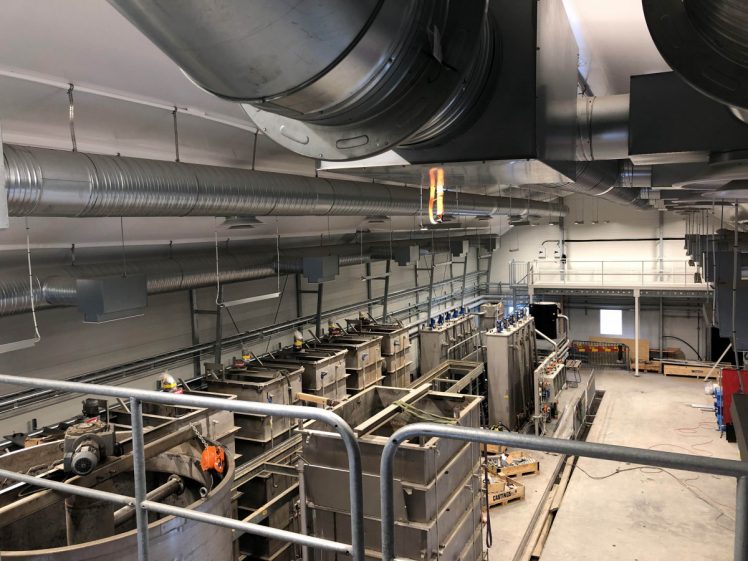
SWIC bridges the gap between research and implementation
SWIC as a research and development facility plays an important role in solving global water and climate problem by driving problem-solving ideas to implementation. SWIC is an excellent example of how to bridge the gap between research and implementation in a real-world application. Water and energy issues can be mitigated not only with innovative and efficient water treatment technologies but also strategies for recovering resources from wastewater and other waste streams. There is a need to transition into a fossil-free society due to the alarming adverse effects of petroleum-based products on the climate. Material and energy recovery from waste and industrial residues is integral in the circular economy concept that will help create value and contribute to the UN sustainability goals by reducing virgin materials’ consumption and decreasing waste generation.
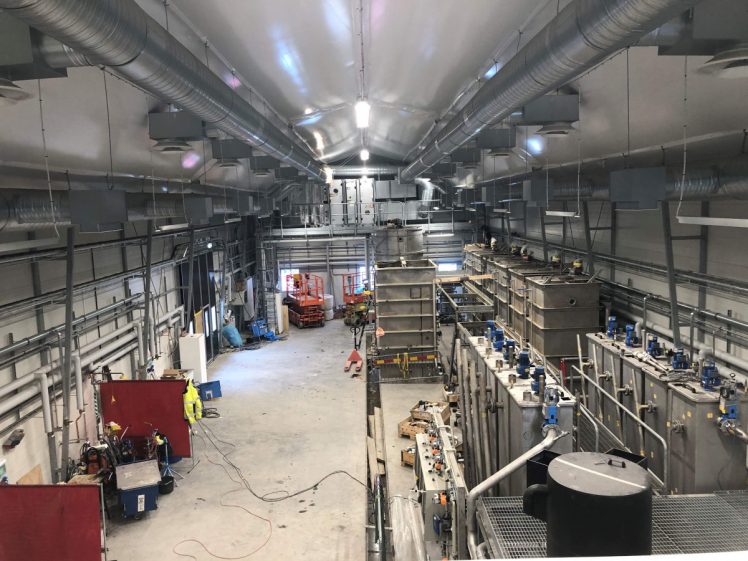
A place to test new technologies and innovative solutions
SWIC is a unique pilot- and demonstration facility for the development of innovative and sustainable techniques to ensure clean water and a better environment for the present and future generations. The focus of SWIC includes but is not limited to resource-efficient water/wastewater treatment technologies, recovery and reuse technologies, and energy production & carbon neutral processes. SWIC is very well suited for testing new technology and innovative solutions in water treatment and environmental technology. The pilot plant is built in a way that enables flexible control and interaction with various water treatment technologies and processes for resource recovery from waste.
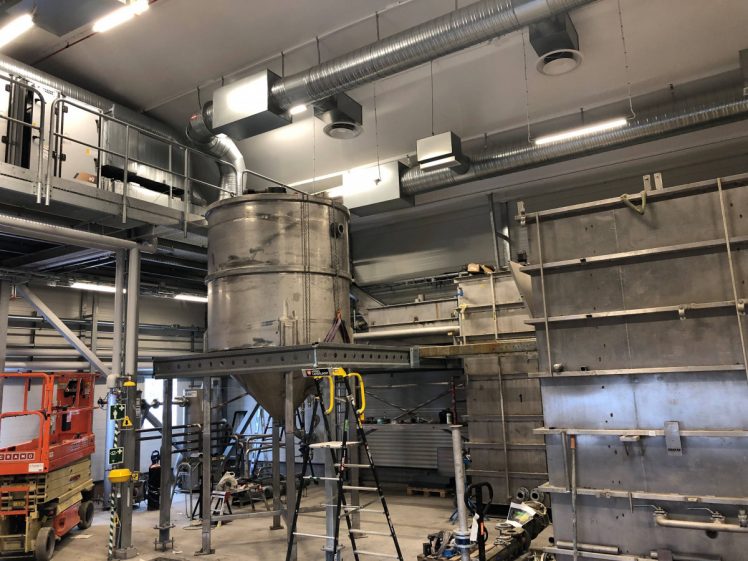
Relocating to new facilities in Loudden
SWIC, formerly called Hammarby Sjöstadverket, was built around 2002–2003 by Stockholm Vatten och Avfall and was situated on top of Henriksdalsberget at the Henriksdal wastewater treatment plant. The R&D facility was handed over to KTH and IVL in 2007 and since then several innovative and world-changing projects have been carried out in the facility. Beyond the research, SWIC is used for educational purposes including PhD, bachelor, and master’s degree practical coursework, internship, and field trips. Since September 2022, SWIC’s operations are relocating to new premises in Loudden, Stockholm, which is about 15 minutes from the main KTH campus. Preparation and installation of pilot plants at the new location at Loudden are ongoing and operation will start after the summer of 2023.
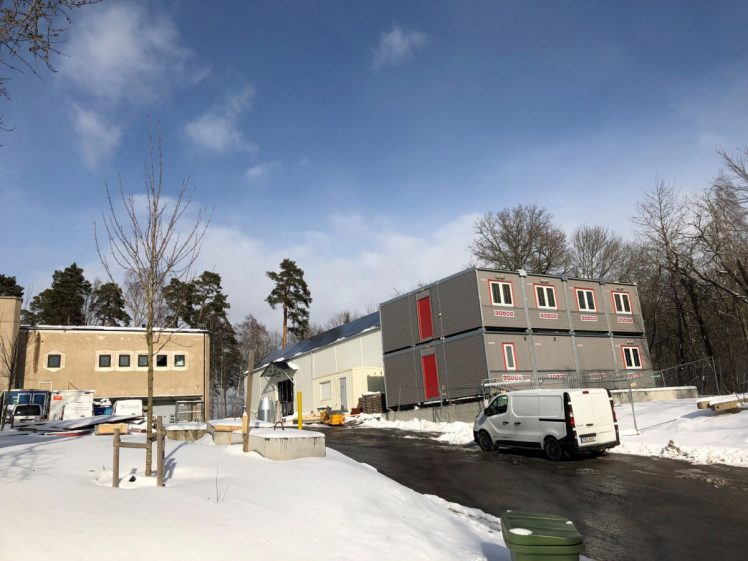
Workshop with KTH researchers
In April 2023, a workshop was held for KTH researchers and IVL staff to discuss future opportunities to initiate innovative projects at the new SWIC. The workshop included the presentation of successful projects that have been carried out at the SWIC and a site visit to SWIC’s new location at Loudden. There was a lot of excitement about the new place and KTH and IVL researchers are looking forward to having their teaching and research activities at the innovation centre. Participants of the workshop see degree projects, product development, course, and site visits as some of the activities befitting for the new location.
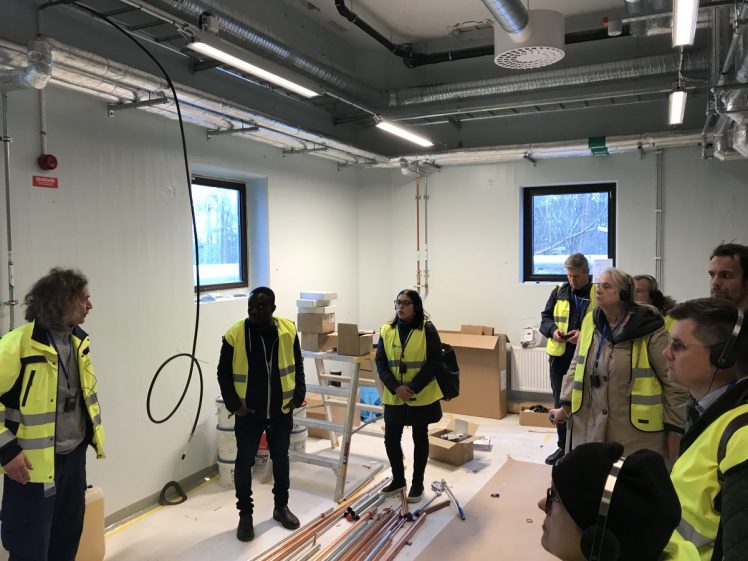
- Hammarby Sjöstadsverk on the WaterCentre@KTH website
- SWIC, Sjöstadsverket Water Innovation Centre on IVL’s website (In Swedish)
Isaac Owusu-Agyeman is a researcher at the Department of Industrial Biotechnology and the deputy coordinator and KTH responsible person for the Hammarby Sjöstadsverket

